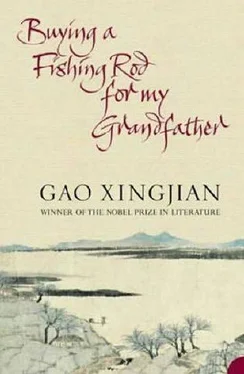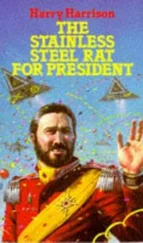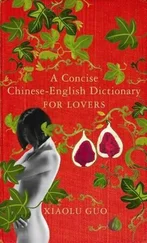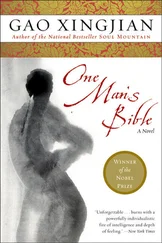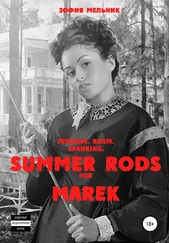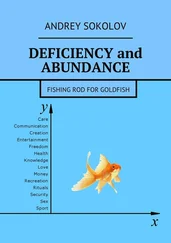His fat belly is exposed, covered only with bamboo medical suction cups; the part below his lower abdomen is covered with the white sheet.
Sitting on a small wooden stool, a cobbler wearing a felt hat takes the nail from between his teeth and presses it into the high heel of the shoe clamped between his knees. With one blow of the hammer, it is in.
The murky black seawater flows down from the stone steps, soundlessly, flowing down, one step at a time.
He looks up to the ruins of the fortress at the top of the cliff and goes up the broken stone steps that are in the shadows. The fortress, however, is in the sunlight and the outline and texture of each stone are quite distinct.
He enters the pitch black doorway of the fortress wall, then suddenly hears the sound of an iron chisel being hammered into rock. He stands still and the sound stops. As soon as he resumes walking the sound follows his footsteps. He stops and the sound stops again. He then deliberately stamps his feet and the iron chisel clangs noisily. Finally, when he starts running hard, the sound vanishes.
It is a long, dark tunnel. He moves slowly ahead, groping. At the other end is a ray of light and the exit gradually appears – a doorway. Outside, the sunlight is brilliant, and the sound of the chisel can be heard clearly. Moving stealthily to the doorway, hiding in the shadows, he sees someone hammering at some rocks. He walks over and stops behind the man. The man turns around. He has a dry, sunken, old face creased with deep wrinkles, yellow and tanned, and his sparse front teeth are completely covered with tobacco stains. He is an old Chinese peasant from a mountain village and as he squints in the sunlight, his eyes are vacant in the slits, staring somewhere else. The vague sound of the sea vanishes just as it starts.
The murky black seawater surges in from the stone steps above on the left, soundlessly. A little light comes in only from outside the half-open doors above the stone steps, and the reflected light indicates that the force of the water is quite strong.
He is pedaling on a bicycle and the wheels are turning at a medium pace. He is riding an ancient bicycle with wide handlebars, traveling along a narrow village highway. In the distance on the left is a big stretch of grassland on a slight incline where there is a line of four people, backs bent, who seem to be pulling hard on something. What they are pulling isn't clear, but it is something very heavy that looks like a wooden boat yet could be a coffin, and leaves a track in the grass wherever they pass. Their every step is slow and strained. Wafting through the air is a woman's wail, like song and lament, like the wailing of a Chinese peasant woman at a funeral.
The sun reflecting off the bell on the bicycle handlebars hurts his eyes, and the wailing seems more and more like the songs or hauling chants of coolie workers. The wheels of the bicycle turn along the straight asphalt road.
Four gaunt men with purplish bronze faces, sweating backs, and bare upper torsos are wearing wide cloth waistbands and straw sandals. As he looks at the rope, which appears to be taut, there is a sudden loud snap.
A motor car overtakes the bicycle, and speeds off. As he turns his head to look back, the sun directly over the left side of the field is blinding. No one is around and the lingering sound seems to be either the cry of insects or his ears ringing.
In the underground cellar, the mattress is soaked in the black water. The white sheet is also saturated, and the man with a hat over his face is stiff and looks like a corpse. Water keeps dripping from above, and there is now also the pop of bursting bubbles.
With the bicycle parked nearby, he lies on his side in the shade of a tree, looking at this neglected apple orchard. Here and there among the branches are a few red apples that had escaped being picked. Not too far away is the gurgling of a creek.
A barefoot girl appears under the apple trees ahead. She is carrying a bucket of water that seems too heavy for her. Her purplish red jacket has a single slanting lapel, and the legs of her blue floral-print trousers are rolled up to just below the knees. She has two long plaits, and her bright black eyes look too big for her small face. She gives a start, uncertain whether or not to keep walking. Suddenly it is lonely all around.
A small tree is drifting in the wind. Dirt splashes up, and billowing clouds of thick black smoke and dust suddenly spread through the sky. Then, as planes swoop overhead, the strafing of machine guns, exploding bombs, and, immediately afterward, the crying of babies and the wailing of women can be heard.
Several small boys squat around an iron spade, watching it sink into the ground as a foot treads down on it. A clod of earth is dug up and flattened into small pieces with the spade, then another clod of earth is dug up and flattened, and yet another. A big boy stoops to pick up a machine-gun bullet, brushes it on his shirt, puts it into his trouser pocket, then takes the spade to another hole nearby to dig. One of the small boys surrounding him shakes his head as he looks at the row of holes in the ground.
The murky black water makes a gurgling sound as it flows down all the stone steps, unstoppably.
A match is struck in the dark and a yellowing, slightly faded old photograph is set alight. It is the photograph of a young man in a suit and tie and a young woman in a qipao together with a three- or four-year-old boy. Their shoulders pressed together, both the adults have posed smiles on their faces. The eyes of the boy between the parents are rounded, and he has a surprised look. The flames on the edge of the photograph are burning toward his parents. The photograph is shrinking and beginning to curl up, then – whoosh! – the whole photograph is burning, his parents are alight and the child is charred.
A bubble keeps growing as it is blown. The soapy surface is moving faster and with the sun shining on it, the colors become brighter, more colorful, more sparkling, until it can't get any bigger. It silently bursts as amazement lights up the face of the little boy blowing bubbles.
The mattress in the black water slowly begins to float up. It tilts slightly, wobbles back, sways a few times, each time becoming steadier, and eventually it is floating on the water.
Water is dripping everywhere. He looks up at the rainwater coming down from the eaves; outside on the ground there are some abandoned iron plows and farm machine parts. Two dogs charge at him with their jaws wide open. He retreats into the granary, where the ceiling is high and bundles of fodder are stacked right up to it. There is a long wooden bench in the middle of the dark granary and young women are sitting around it. All of them have flour sticking to different parts of their faces: eyelids, nose, eyebrows, cheeks, lips, ears. Heads bowed, they shape lumps of dough in their hands as they chant, engrossed in grief. However, a young woman with long plaits has an oil lamp with a shade in front of her. She is looking into a mirror at her woman companion behind who has untied her plaits and is combing her hair for her. Without realizing it, he is right by the mirror and sees the scissors cut her long hair short. Immediately, the barking of dogs is heard.
Rainy weather, an empty lane in a village that is so lonely, it is hard even to hear the rain. Above the stone wall is a row of tightly shut old wooden windows. A small wooden door reinforced with iron strips set into the stone wall stands as tall as a person on the cobblestone road. Dried by wind, the rough grain sticks out on the timber. The sad song of a girl weeping at being married seems to seep faintly through the cracks of the door. As one approaches the door, everything becomes more and more hazy.
Hands slowly push open a heavy door, inside is a church. The rows of empty pews retreat in the midst of the reverberating footsteps echoing on the stone floor. On the walls are the remains of medieval murals. The lines are blurred, the colors blackened with grime, and none of the crumbling faces of the disciples can be made out.
Читать дальше
Конец ознакомительного отрывка
Купить книгу
